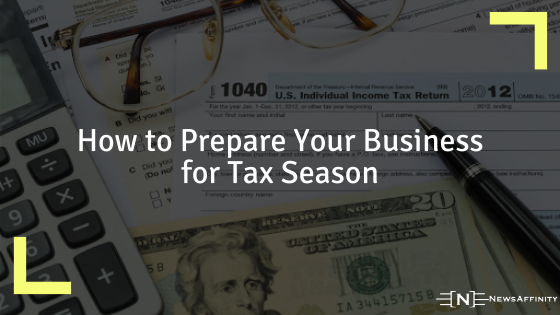As if running a business wasn’t hard enough, Uncle Sam requires you to fill out, complete, and pay taxes to the federal government. As a business owner, you may not be well-versed in business tax law, which can make tax season confusing and a headache. The last thing you want is to miss a deadline, make a mistake on a form, or forget to pay a bill that leads to an IRS audit.
To ensure you’re on good terms with the federal government, it’s important your business is prepared. Below, we’re going to go over how to get your business ready for tax season.
Gather all of your business’s financial records
The first line of business of preparing your company for tax season is gathering all of your business’s financial records. If your books aren’t updated and balanced correctly, you won’t be able to pay your taxes, which is why it’s essential you take your time throughout the year to keep your bookkeeping in order.
To balance your books, use double-entry bookkeeping. This process helps equalize the sum of all your credits and all of your debits. If it’s not balanced, you may have an accounting error that needs to be solved. Additionally, you want to make sure all of your business transactions are recorded.
Whenever you collect payments from a sale through your point of sale system or pay for services such as contract work or marketing, make sure to keep these documents for proof. If you’re nervous about losing important documents, uploading them with a document scanner and storing them on a cloud storage device will ensure they never get lost.
Collecting key business information is needed for filling out your tax forms, calculating your deductions and business tax credits, and applying for tax relief. As a business owner, you’re able to deduct expenses, such as:
- Payroll expenses
- Retirement plan contributions
- Business equipment
- Office supplies
- Work travel and mileage
It’s also best to keep your small business finances and personal finances separate. If the IRS finds you’re labeling personal expenses as business expenses, you can land yourself in trouble and face fines and penalties. To keep them separate, open a business banking account and use a business credit card.
Know when the deadlines are
The typical filing deadline for annual tax returns is April 15th. However, depending on your type of business, you may have to submit taxes and tax forms on other dates throughout the year. Below are other tax deadlines that may apply to their business:
- Partnership Tax Deadlines: Form 1065 is typically due by March 15th, and the extension deadline is typically due by September 16th.
- C Corporation Tax Deadlines: Form 1120 is typically due by April 15th, and the extension is typically due by October 15th.
- S Corporation Tax Deadlines: Form 1120S is typically due by March 15th, and the extension deadline is typically due by September 16th.
- Sole Proprietorship Tax Deadlines: Form 1040 is typically due by April 15th, and the extension deadline is typically due by October 15th.
- Nonprofit Tax Deadlines: Form 990 is typically due by May 15th, and the extension deadline is typically due by August 15th.
Fill out the correct forms
When it comes to filing your taxes, businesses have extra forms that need to be filled out, depending on your business structure, such as sole proprietorship, S Corporation, or LLC. Some forms your business may need to fill out include:
- Schedule C attachment to your personal tax return (typically for sole proprietors and sole owners of LLCs)
- Form 1120 (typically for corporations and LLCs with multiple owners)
- Form 1120S (typically for S Corporations)
Get help from a tax professional
If all of this information sounds confusing, you’re not alone. Understanding the tax code and what your requirements as a business owner are can be difficult to understand. Getting help from a seasoned tax preparer with a proven track record can help you get your business’s legal information in order. Tax professionals are skilled in their trade and can give you peace of mind knowing every form was filled out correctly. Additionally, many tax professionals are skilled accountants and can offer additional services such as accounting and bookkeeping.
Wrapping up
Preparing your business for tax season doesn’t have to be as daunting as it may sound. With these tips on getting your business ready for Uncle Sam, from gathering all of your business’s financial records to filling out the right forms, you’ll be on your way to sailing through tax season with ease.

















Comments